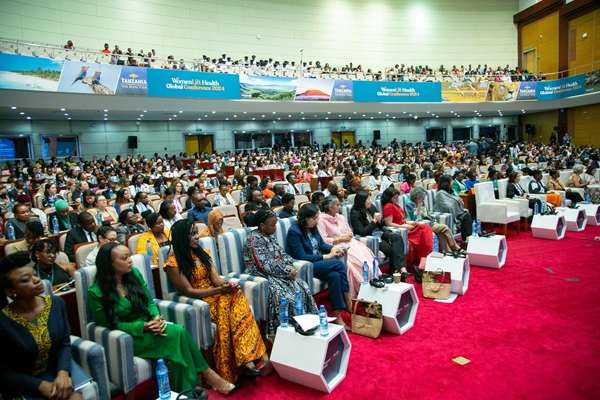
Humanity today faces numerous global health challenges, with the most severe impacts affecting low and middle-income countries. Communicable diseases such as Malaria, Tuberculosis, and virus-related illnesses are leading causes of death and disability in low-income countries. Additionally, approximately 77 per cent of deaths caused by non-communicable diseases occur in low and middle-income countries.
Other significant global health challenges include food insecurity, malnutrition and environmental health issues stemming from climate change, natural disasters, plant/animal diseases and invasive pests.
Unfortunately, women, who are primary caregivers for families, make up a significant portion of the workforce but are often excluded from crucial decision-making processes related to these challenges, depriving situations of their invaluable insights, experience and leadership abilities.
The Challenge
Despite women constituting a higher percentage of the total healthcare workforce, global reports suggest that only 25 per cent of senior and 5 per cent of top leadership positions are held by women. This situation is mirrored in other sectors as well. The barriers preventing women from attaining senior and top leadership roles in healthcare vary across regions due to various factors. These obstacles range from the division of responsibilities between men and women, the challenges of balancing work and home duties, a lack of successful female role models to inspire others, insufficient networks and mentors for women, low self-confidence among some women, male-dominated customs biased against women, workplace harassment and inadequate school enrollment for girls, among others.
In addition to these challenges, new obstacles have emerged due to rapid technological advancements in healthcare, climate change, environmental pollution and economic limitations.
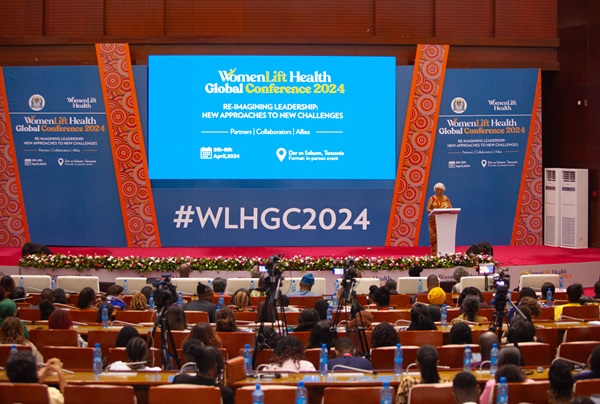
WomenLift Health Intervention – #WLHGC2024
To address this glaring gender disparity in the global healthcare sector, WomenLift Health, through the Women Leaders in Global Health Conference – now the WomenLift Health Global Conference – has emerged as a focal point for promoting gender equity in global health since its inception in 2017.
The WLHGC, one of the largest gatherings dedicated to advancing women’s leadership in global health and advocating for gender equality, provides a platform for fostering global discussions on the significance of women’s leadership and amplifying the voices of national and global healthcare leaders.
This was the essence of the 2024 WomenLift Health Global Conference, themed “Reimagining Leadership: New Approaches to New Challenges,” held in Dar es Salaam, Tanzania from April 6 to 8, 2024. The conference, which attracted over 1000 participants worldwide, focused on strategies to address the gender disparity in the healthcare sector by encouraging discussions, promoting gender-inclusive leadership models and creating pathways for women to ascend to leadership positions.
Over three days, through a series of plenaries, parallel sessions, workshops, and networking events, participants enhanced their networks and leadership skills, exploring practical steps to enhance women’s representation in leadership roles, bridging the gender gap and improving health outcomes for all.
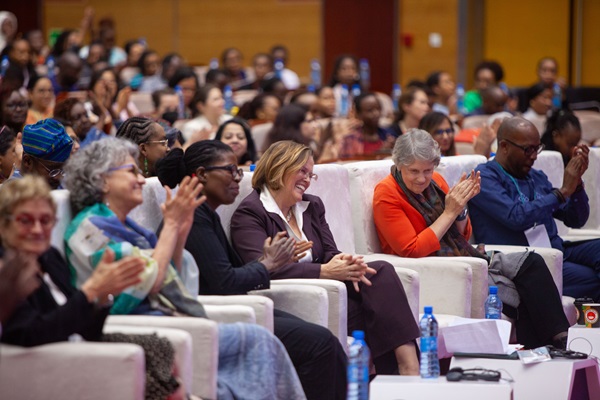
Women As Leaders
In her opening remarks, Amie Batson, President of WomenLift Health, emphasized the organization’s commitment to reimagining leadership in the global healthcare sector.
“In today’s world, women constitute 75% of the healthcare workforce globally but hold only 25% of senior leadership positions. We possess a vast and diverse talent pool in the healthcare sector. However, by not providing equal opportunities for leadership advancement, we severely limit our capacity to address the world’s most critical health challenges,” she emphasized.
Batson highlighted that addressing the most significant challenges necessitates having both women and men at decision-making tables, bringing diverse perspectives, experiences, and expertise. She stressed that understanding challenges, designing solutions, formulating policies, and implementing actions that impact women, children, families, communities, and entire nations require equal participation and representation of women – who comprise half the population.
“There is compelling evidence indicating that women leaders are more inclined to prioritize the health needs of children, women, and communities, from reproductive and maternal care to clean water and sanitation, and building stronger health systems.
“When more women assume leadership roles, they introduce fresh ideas and innovative solutions that enable communities, organizations, and entire countries to thrive.
“There is a growing acknowledgement that the nature of our global and national challenges is evolving – these challenges, whether the COVID Pandemic or climate change, are increasingly complex, interconnected, fast-paced, and characterised by higher uncertainty. As these challenges evolve, leadership to navigate them must also evolve,” she added.
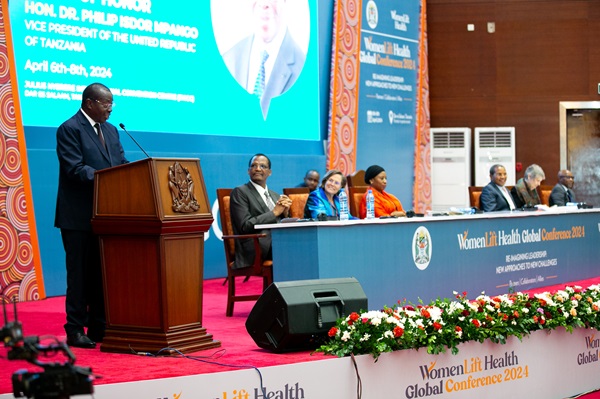
The Role of World Leaders
In opening the conference, the Vice President of the United Republic of Tanzania, Dr. Philip Isdor Mpango highlighted the global challenges of climate change, pandemics and evolving technology. Addressing these challenges necessitates inclusive leadership and diverse collaborations. He praised the theme of the 2024 WomenLift Health Global Conference, emphasising its alignment with the current world.
President Samia Suluhu’s administration prioritises gender equality and equity, evident in the appointment of female leaders to key positions, leading to improved health outcomes for Tanzanian citizens.
During a fireside chat, the former Prime Minister of New Zealand, Rt Hon Helen Clark emphasised the importance of women’s visibility in decision-making processes, stressing that their representation is crucial for effective outcomes in all areas of society and decision-making.
Former President of the United Republic of Tanzania, Dr. Jakaya Mrisho Kikwete highlighted the need for policies and leadership commitment to increase women’s representation in decision-making roles, emphasising the importance of intentional efforts towards gender equity in global health leadership.
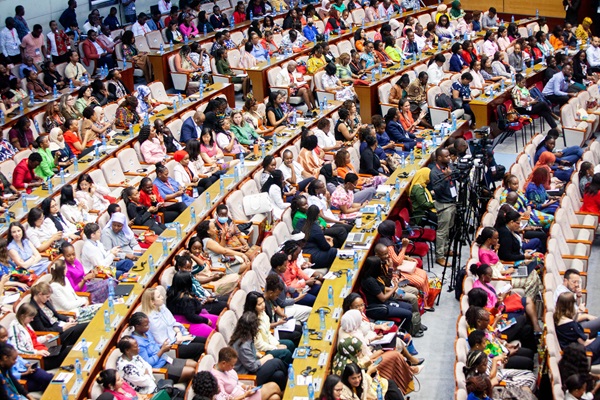
Conclusion
In conclusion, the global health leadership landscape remains predominantly male-dominated, limiting diverse perspectives and hindering women’s full potential in shaping the global health agenda. The closing remarks at WLHGC2024 underscored the importance of shifting the narrative around women in public health, emphasising the need for action, collaboration, and boldness to achieve meaningful change and promote inclusive leadership for a better future.


